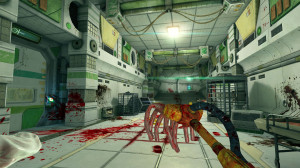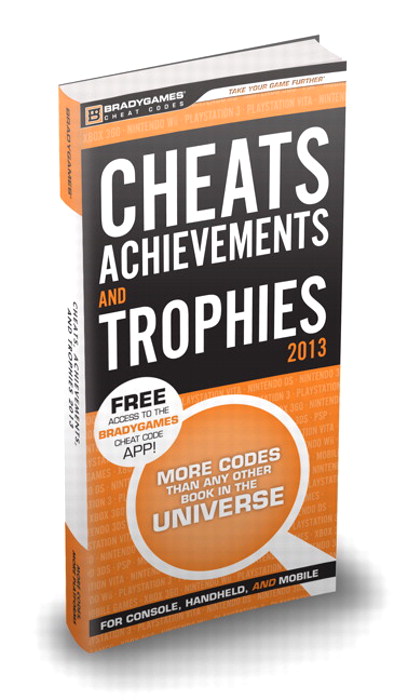
iddqd. dnkroz. it is a good day to die. And of course any of the many other ways to say /god.
For some small number of people, these little phrases will map to enabling God mode in different old games (for reference, Doom/Doom 2, Duke Nukem 3d, Warcraft 2, and Half Life respectively). And I still remember them all off the top of my head.
It is sometimes hard to admit, but I used to cheat in games. A lot. I had and used Game Genie starting at the original Nintendo Entertainment System and moved on to GameShark as time went on. Yet today, I go out of my way to not read any sort of walkthrough for a game until I am honestly stuck and never look for ways to cheat the games I play (except infinite lives in Mario; I don’t really understand why lives are there anyway). So is cheating good? Bad? Both? Neither? Well, I argue it’s complicated.
The Dark Side of Cheating
To get this out of the way, I never support advantages in competitive play without all the players involved agreeing to the rules. If everyone agrees to play by different rules or give a subset of the players a handicap, then there are no issues. But cheating against others otherwise is never acceptable.
Even beyond the obvious, though, there are issues with cheating.
I started cheating because I used to play games with my father. He introduced me to games such as Commander Keen back in the day and also Wolfenstein and Doom. That said, my father has never had the greatest of reflexes nor liked failure. He is much more in the camp where sufficient planning is important and then a single execution rather than try-fail-repeat-until-success. Because of that, he was attracted to cheating in games to prevent his failure. Unfortunately, this fear of failure passed down into me to varying degrees, but gaming was a large place where it has taken a long time to accept failure.
The problem with this mentality is that it essentially shrugs off the idea of getting better at a game. If you never fail at a game, obviously you already have surpassed its challenge and it has little more to give you after the interest of your first experience (be it for the novelty or for the story) has worn off.

There’s also the feeling of satisfaction of accomplishing something that felt like a challenge. I linked to this article from 3D Realms when discussing difficulty, but this is functionally the same argument: cheating can make a game too easy. If one considers a game like Doom, there is only so much fun to be had with a game about shooting demons when there is no challenge. The game functionally is just the opposite side of Viscera Cleanup Detail where you are just making a mess and walking around. That isn’t to say there isn’t some fun there, but it is a drastically different game.
Besides lacking satisfaction from the gameplay, cheating can severely undermine the impact of the story. There is no tension if a battle is assured. Made-to-lose fights might end with you winning (as an aside, some game’s made-to-lose fights are actually winnable anyway). And overall, emotions in the game are lost. Frequently cutscenes don’t make sense anymore because things happen in the wrong order. And though a player did do this to themselves, in the end they are the ones who will or will not recommend a game. If they didn’t have fun for whatever reason, their recommendation will reflect that.
Why people choose to Cheat
While I made the fear of failure argument before, I think there are a lot more reasons people do cheat. And, this is crucial, that’s ok for the industry and for the players.
This is something that I feel like I shouldn’t actually have to call out but it is actually ok for people to have other opinions. Jim Sterling, who very much encourages complaining when you do not like something, also feels this is in no way helpful or acceptable. The biggest take away here is that even if you don’t like cheating in games, others who do are not hurting your games.
But it might be hard to fathom why people would actively want to cheat. Beating a game faster by cheating isn’t an accomplishment. Eliminating all challenge doesn’t seem like a feature. Skipping parts of a game is reducing the experience. So what’s so good about it.
Fundamentally, it comes down to playing a game you’re way.
In an above link, it mentions Jennifer Hepler, a former writer for Bioware, doesn’t like combat in games. For her, the story and just exploring are the best and most enjoyable parts. Combat is just a slog that gets in her way of having fun. To her, combat can be seen as a slow and glorified loading screen providing no real benefit to play. But if, for instance, she enabled cheats to make her characters never die and instantly kill enemies, then what is just a loading screen to her is minimized. And who doesn’t love when loading times go away in games?
There are cheats that work on the other side of challenge too, though. For instance FIGHTFIGHTFIGHT in GTA: Vice City (for PC) causes the normal citizens to become violent. There are plenty of others that can actually provide you with a greater challenge than the original game. When you really love playing a game, isn’t it a good thing to be able to adjust your gameplay into the sweet spot?

I talked about the difficulty sweet spot before, but there is more than just challenge that goes into a game. Time commitment can be another metric on which people disagree with the designers. The success of GameFAQs and how walkthroughs are still being published both on paper and in digital forms show that people want help getting through games. Cheating is another path to a similar goal.
I know there is an argument that a walkthrough still requires you to actually play the game by the rules while cheating does not. I question this argument. The game’s rules involve the player not knowing many things. If you cannot discover (or chose not to discover) the information you needed in the game, then you are cheating yourself out of the experience of exploration. It’s possible that isn’t a fun aspect of the game, but you want to find the story or items or whatever. This sounds very similar to Hepler’s desire to enjoy the story and dialog while not having fun with combat. Argue against it as some might, but I actually find guides more able to ruin my experience than explicit cheating.
My biggest example of a game being personally ruined for me by a guide is Fallout 3. Fallout 3 is a good game, but in the game there exist items that can permanently increase your attributes in various categories. There are a limited amount of them in the game. If you get them all, by default, you will still not have maxed out your attributes. I specify by default because there is a way, through items and skills in the game, where you can. This makes me feel like I’m playing the game wrong if I don’t play the game that way. This then ruins my experience of exploring because I know there is a “right way” to do things. Somehow this increases the stress I feel playing the game and reduces the fun.
And in the end, cheats can be a great way to reduce the stress or tension that a game may produce. Yes, you want to feel motivated, but you also want to ensure you are always having fun. In theory, this is what easy mode for games should be, but that’s not always true. Cheating allows a game to remain fun to play when otherwise it has become impenetrable.
I feel new gamers should have cheats as an option a lot of the time. There are many, many games out there that assume you have a certain level of ability and drive before you even start playing them. To an extent, this is true; a player started the game because it looked interesting. But unfortunately, a player might start a game because the setting or story looks interesting yet it is a completely new genre. And maybe, in time, the genre can be fun. But, as someone who started playing FPS before RPGs, when there seems to be complexity beyond just playing the game (managing party supplies and finding better gear and so on), it can be overwhelming when you really just want to advance the story and progressively get used to how you should be thinking about the game. Cheating let me into new worlds that otherwise I would not have been able to keep at because I didn’t have anyone helping me into the deep end of the games. And tutorials can only do so much.
Part 1 Conclusion
So in the end, is cheating a good thing? I think it can be. Because of that, I do wish that more games would just leave their developer cheats in the game when it ships. They had them at some point and then they will be understood. Glitches and third party trainers might be able to incorporate more players or they might do other terrible things to their experience.
And in the end, people don’t have to use them. If anything, using them should disable things like achievements (I’ve heard XCOM: Enemy Unknown has something like that, but never played with it), but allow the game to be played. The game is here to be enjoyed as you want, but achievements are again a sort of competitive field. And the cheats can be there to help train people to be ready for that.
But cheating has a new definition in some places due to Free to Play. We’ll look at that shift in part 2.
